
Astrobotic’s Peregrine lunar lander is still operating on orbit, with the company saying there is “growing optimism” that the spacecraft could survive in space longer than the current estimate.
The Pittsburgh-based startup has been releasing a series of updates to social media platform X since the spacecraft’s launch in the early hours of Monday morning.
Shortly after separating from the launch vehicle, United Launch Alliance’s Vulcan Centaur, engineers immediately started encountering issues.
But despite all odds, Peregrine has been operational in space for more than four days, and the estimated operational time remaining continues to extend.
The remaining 10 payloads on board are passive, and do not require power or communications from the spacecraft.

In a devastating series of updates earlier today, the Pittsburgh-based startup said a “failure within the propulsion system” is causing a critical loss of propellant.
The propulsion system is a critical component of a spacecraft, but it’s especially important for this mission, which is taking an indirect path to the moon.
NASA, likely sensing the difficulty of a moon landing, has issues awards to multiple companies under the program.
Other awardees include Intuitive Machines, which is set to make its own lunar landing attempt next month, and Firefly Aerospace, which will conduct its first lunar mission later this year.
A deputy administrator from NASA’s Science Mission Directorate, Joel Kearns, said in a statement after launch that “each success and setback are opportunities to learn and grow.

United Launch Alliance’s Vulcan Centaur rocket has been rolled to the launch pad at Cape Canaveral Space Force Station ahead of its early Monday morning launch, a mission that could end with the first fully private spacecraft landing on the moon.
Vulcan’s primary payload is Astrobotic’s Peregrine lunar lander.
The two companies had been targeting a Christmas Eve launch, but ULA decided to postpone due to ground system issues.
“We are ready for launch, and for landing.”ULA and Pittsburgh-based Astrobotic are not the only firms with much riding on Monday’s launch.
That program, Commercial Lunar Payload Services (CLPS), has collectively doled out hundreds of millions to spur private development of moon landers.
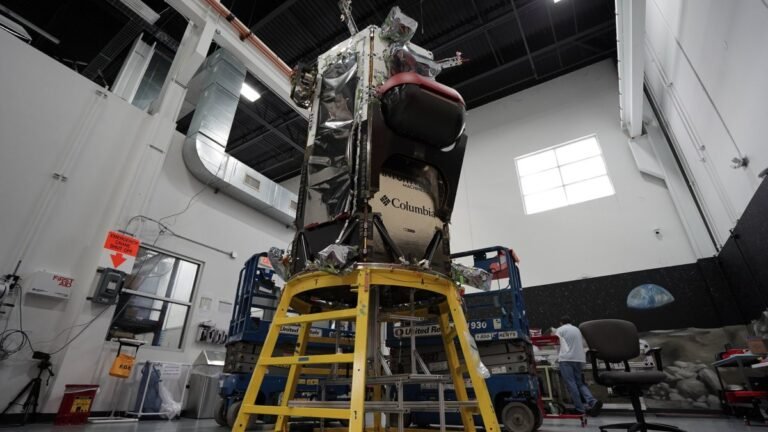
Intuitive Machines is pushing back the mission of its first lunar lander to mid-February in coordination with launch provider SpaceX, the company said earlier this week.
The lunar lander must launch from a specific launch site at NASA’s Kennedy Space Center, Launch Complex 39A, because it needs to be fueled with oxygen and methane propellants prior to launch.
While Intuitive Machines did not specify an exact launch window, it’s looking increasingly likely that it could coincide with the planned landing of another privately developed lunar lander.
Overall, the new launch window is a negligible delay for Intuitive Machines, which is aiming to make lunar access a cornerstone of its business.
Intuitive Machines is also setting up business segments related to orbital services, like satellite servicing and refueling, providing data services for the moon, and the sale of other space products.
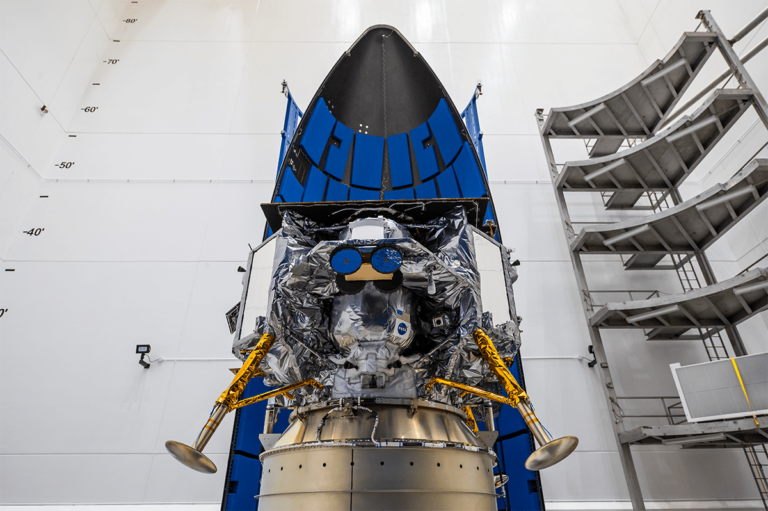
Astrobotic’s first lunar lander is ready for lift-off.
The company announced Tuesday that the lander, called Peregrine, has completed final checkouts and fueling after it was mated with United Launch Alliance’s Vulcan Centaur rocket last month.
Astrobotic is executing the mission as part of a $79.5 million contract from NASA under the agency’s Commercial Lunar Payload Services (CLPS) program.
Pittsburgh-based Astrobotic is one of a handful of commercial players betting that there will be a thriving market for lunar payload delivery services.
Other companies include Intuitive Machines, which is aiming to launch its first lander just days after Peregrine, on January 12, as well as Firefly Aerospace and Japanese firm ispace, which had a failed lunar launch earlier this year.
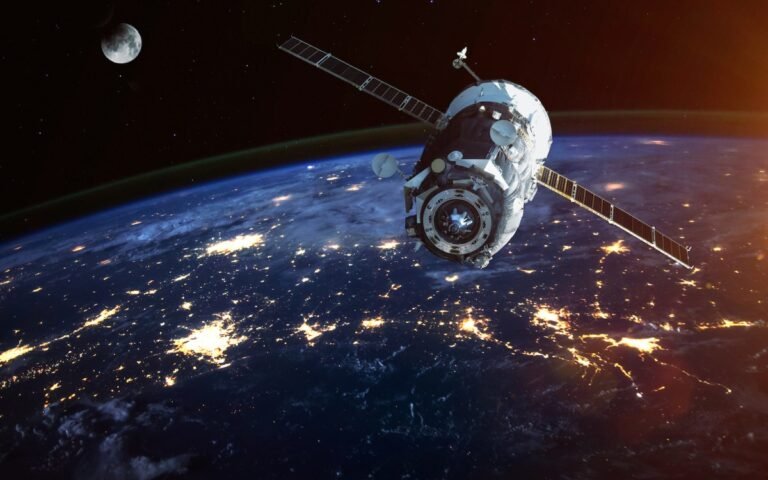
Despite a challenging economic period in 2022, this year’s investment into the space tech sector has continued to show signs of recovery.
Space tech has showcased a remarkable resilience amid macroeconomic uncertainty, bucking trends in the broader venture capital tech market.
Approximately $4.8 billion was invested into the space tech industry by the end of Q3, with growth-stage investment activity increasing.
These DoD contracts will stimulate a cascading effect throughout the broader space tech market.
This surge is expected to be catalyzed by strategic initiatives from respective governments, underscoring a global expansion and diversification of venture capital interest and commitment in the space tech sector.

When looking to the future, it seems as if space exploration is just getting started. With companies like ispace challenging the status quo, there’s no telling where we’ll be headed…
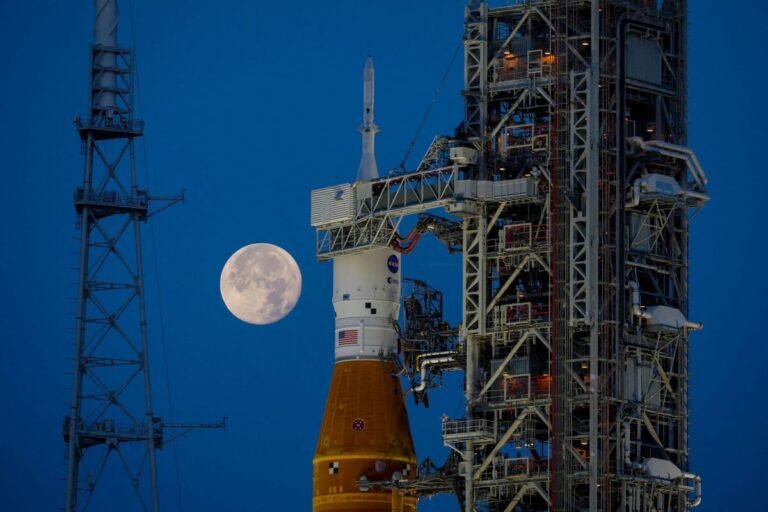
The emergence of a lunar economy presents immense potential for growth for both Lockheed Martin and Crescent Space Services. With the moon becoming an increasingly popular destination for exploration and…
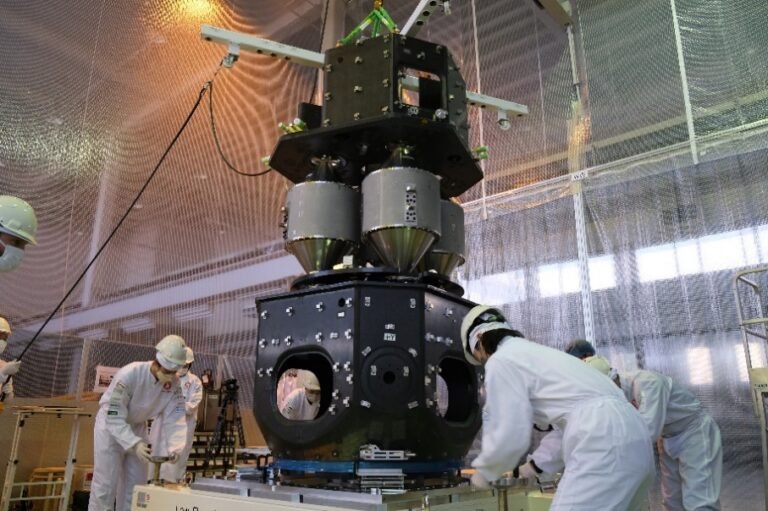
If all goes according to plan, Tokyo-based ispace will be the first company to land a spacecraft on the surface of the moon in over three decades. The Hakuto-R lunar…












